Africa is a continent made up of 54 recognized countries and approximately 1.5 billion inhabitants as of 2025, according to Population of Africa (2025).
Bien que ce continent soit en pleine expansion depuis plusieurs décennies, l’accès inégal à internet pour les femmes et certaines tranches d’âge reste très marqué. En effet, ceci s’explique par une combinaison d’obstacles structurels tels que des facteurs politiques, culturels, socio-économiques, éducatifs et technologiques.

Systèmes politiques, politiques publiques & régulations
Political systems, along with public policies and regulations, have a significant impact on access to technology. For example, some public policies less frequently include specific approaches to gender equality in access to technology, including the Internet.
Women's access to digital tools or education can also be influenced by family contexts and local culture. As a result, women may have limited access to sources of information, communication, and empowerment. Moreover, certain cultural practices prioritize the education of boys, while girls are traditionally directed toward domestic or marital roles.
Inégalités de genre
In Africa, as in the rest of the world, social and cultural norms influence the roles assigned to women and men, which can impact women's access to education, economic autonomy, and technology. These norms are reflected in specific legal frameworks. For example, in Niger and the Democratic Republic of Congo, laws require a married woman to obtain her spouse’s consent to open a bank account, limiting financial autonomy and access to digital services.

Furthermore, in some family contexts, women may face obstacles to using technology. This can restrict their access to information and digital tools that could promote their personal and economic empowerment.
These dynamics are also reflected in the economic sphere. In addition to earning lower wages, women often have less control over economic and financial resources, which affects their ability to acquire digital devices. According to APAnews - African Press Agency, 60% of adults excluded from financial services in Africa are women.
Incidence de l'âge
Age has a strong impact on girls’ access to education and technology. Girls and adolescents between 10 and 18 years old are less likely to be enrolled in school due to gender-related social norms. As a result, they have limited access to certain digital subjects such as science, technology, engineering, and mathematics (STEM), and acquire few or no skills in using digital tools.
Many young women between 18 and 35 years old do not complete their secondary or higher education. The enrollment rate of women in technology-related programs is low; for example, Guinea has only 6% of female researchers, according to AUDA-NEPAD.
Adult women between 35 and 50 years old belong to a generation educated before the widespread adoption of digital technology. As a result, their exposure to and familiarity with computers and online learning is very limited. This can lead to dependence on their children or close relatives to use the Internet and digital resources, especially in the absence of targeted training.
Older women, aged 50 and above, have particularly high illiteracy rates. Indeed, according to Education in Guineaa, in 2023, in Guinea, the female illiteracy rate was 75%, with the majority of this population living in rural areas. This historically low access to schooling contributes to limited familiarity with digital technologies, which can lead to digital exclusion due to a lack of skills. Additionally, older individuals may be wary of digital tools because of existing risks and abuses.
L'éducation, facteur clé de la connectivité
Education and schooling of women play a crucial role in access to technology and connectivity. In Africa, literacy rates vary widely: according to TheGlobalEconomy.com, in 2022, countries such as Mauritius, South Africa, and Namibia had an average literacy rate of 97% among 15- to 24-year-olds. However, in countries like Niger, Chad, and South Sudan, the literacy rate for women aged 15 to 24 is much lower, averaging around 20%. It is also in these countries with low literacy rates that digital skills tend to be more limited and unequal.

These figures are driven by the lack of technical or digital training opportunities for women and social norms that exclude women from education and technology from a young age due to the political climate and laws in certain African countries.
Coût & infrastructures
Accessing technology in its entirety requires significant funding. Since women generally earn less income than men, digital services become unaffordable for many of them. Moreover, subsidies for purchasing electronic devices or internet access are scarce or nonexistent. In Tanzania, for example, the government launched a program in 2023 to help citizens acquire smartphones through loans. This initiative is carried out in collaboration with local mobile phone companies (Ecofin Agency). However, even if subsidies existed, infrastructure and electricity quality—especially in rural areas—are very limited, making network access and device charging difficult.
"Although 85% of the African population has access to third-generation (3G) high-speed mobile services, only 60% are covered by fourth-generation (4G) services, and just 11% by fifth-generation (5G) services.(United Nations)
Sécurité & harcèlement en ligne
A lack of security and fear of retaliation prevent women from accessing technology and lead parents to restrict their children’s access. Indeed, the digital environment can be perceived as hostile; cyberharassment and online violence discourage many women from speaking out and participating, causing many parents to limit online access. As a result, women and children are excluded from online education and technology that enable skill development.

Furthermore, women self-censor out of fear of the consequences: according to Women Press Freedom (, in Nigeria, female journalists face increasing violence, including physical assaults, kidnappings, and online harassment. These acts of violence impact their mental health and professional performance, leading them to self-censor or withdraw from journalism..
Solutions, changements & évolutions
Many solutions exist to democratize access to digital technology for women and different age groups. To ensure positive progress, inclusive public policies and socio-economic systems that enable the integration of women into the digital world should be implemented. For example, the program , offers digital training accessible to thousands of women in Sub-Saharan Africa. Additionally, policies could encourage women to undertake entrepreneurial activities through connected villages, such as the Smart Villages in Rwanda. (United Nations). Public investments to expand high-speed internet access, especially in rural areas, would help reduce existing disparities within a single country.
Feminist practices such as raising awareness through community campaigns or highlighting African women in technology, digital fields, and media would drive significant changes in social norms. For example, Rebecca Enonchong is a pioneer in tech in Francophone Africa, having founded AppsTech in Cameroon, an enterprise software company operating internationally. This awareness also involves educating boys from a young age about the role of women in the digital economy to dismantle stereotypes.
On the education front, creating digital programs or technology training for women of all ages would enhance their autonomy. Additionally, schools should encourage the participation and inclusion of girls in technology, engineering, and mathematics. For example, Regina Honu founded the first technology academy for girls in Ghana.
To increase the safety and confidence of internet users, stronger legal protections reinforcing digital rights and ensuring privacy and freedom of expression online could be implemented, as seen in Kenya with the Data Protection Act since 2019, or in Nigeria with the Nigeria Data Protection Act since 2023.
Impact de DataCup

DataCup is an innovative solution that facilitates access to digital resources in low-connectivity areas, particularly in Africa. By providing localized access to educational and professional content, DataCup can have a significant impact on the connectivity of women and certain age groups in Africa.
First of all, DataCup provides access to a wide variety of offline content: videos, audios, texts, selected and curated by our local partner. This enables women and youth to access digital information, educational support, and professional training, especially in rural areas that often lack internet access.
Furthermore, with the deployment of DataCup in schools, training centers, and local communities, our solution will benefit populations often excluded from traditional digital infrastructures. Thus, women and youth, who face numerous political, economic, and social barriers, would gain access to secure, open, and educational content. This would help reduce the digital divide between genders and generations.
Un dernier mot...
Access to the Internet and technology in Africa for women and certain age groups remains a major challenge. Although the continent is continuously developing, authoritarian policies, social exclusion, gender and income inequalities, security issues, and limited infrastructure hinder Africa’s progress.
To overcome these challenges, a systemic approach including public policies, social change and gender equality, education, infrastructure, and security are key elements to break the cycle of recurring norms.

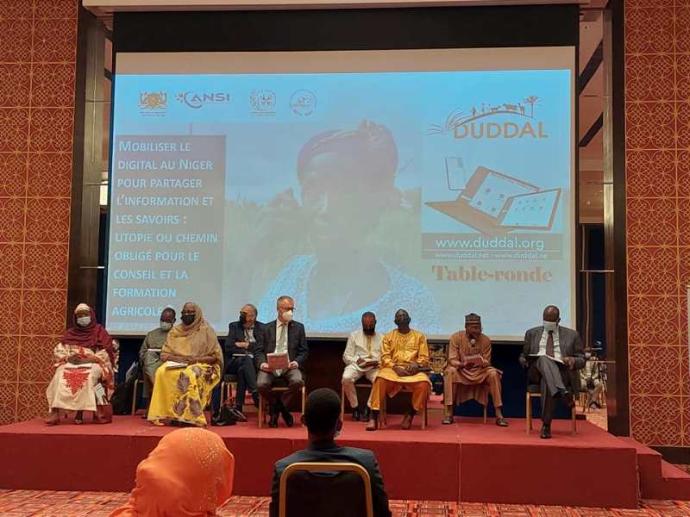 Duddal
Duddal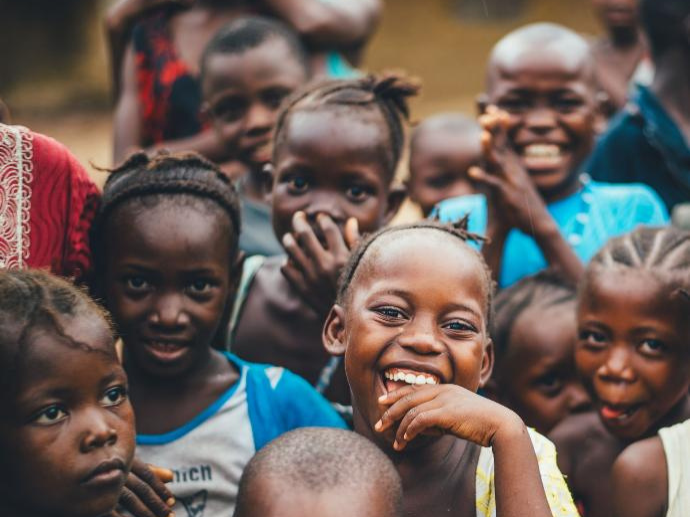 SOS Village d'Enfants Niger
SOS Village d'Enfants Niger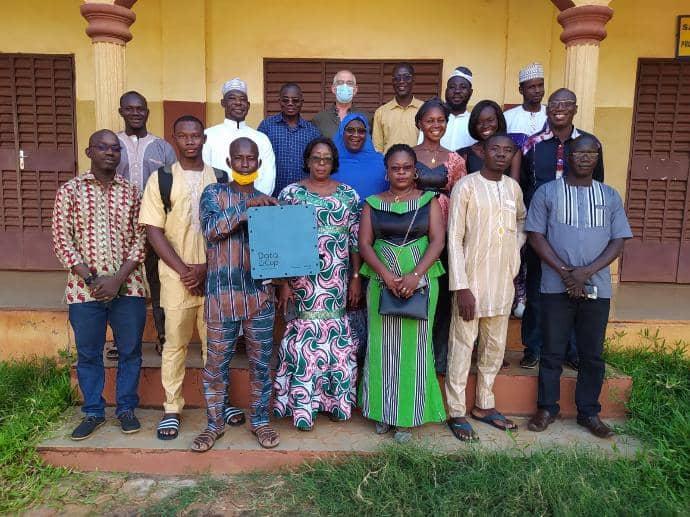

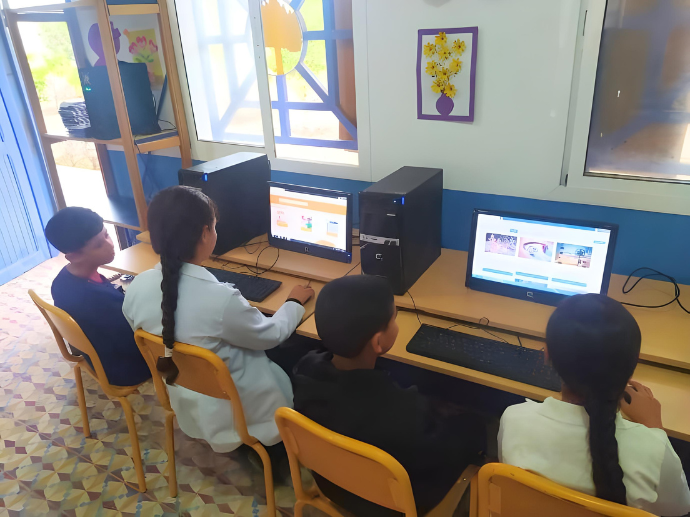
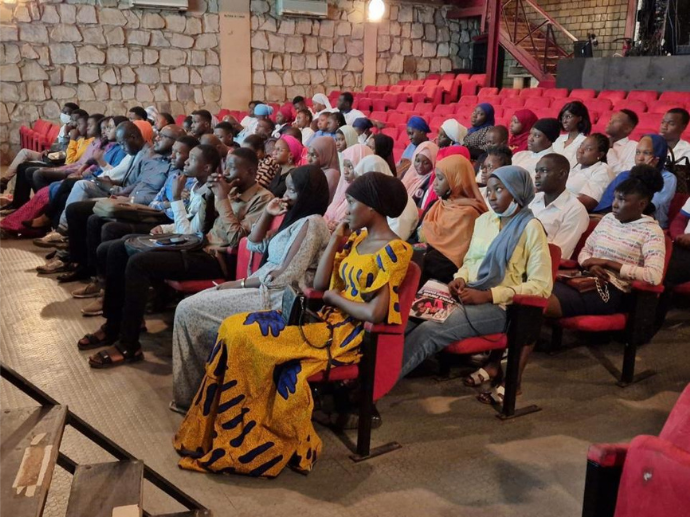
Why are Women and certain Age groups marginalized in terms of Connectivity in Africa?